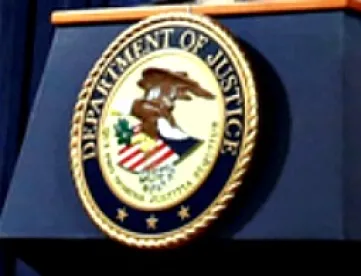WHAT HAPPENED
In March, we discussed the US Department of Justice (DOJ) Antitrust Division’s move to update its standard consent decree language to enhance decree enforceability. Among other things, the changes:
-
Reduced the burden of proof for DOJ to demonstrate a decree violation in court, and
-
Shifted DOJ’s attorney’s fees to the losing party in the event that a decree enforcement action became necessary.
Now, DOJ Antitrust Division Assistant Attorney General Makan Delrahim has further intensified the Division’s compliance focus by announcing the creation of an Office of Decree Enforcement at the Division (Office). The office would have “the sole goal to ensure compliance with, and enforcement of, [Antitrust Division] decrees.”
Currently, the DOJ does not have a centralized organization dedicated to this function, and the merger review units within the DOJ are responsible for enforcing the orders in cases they bring. AAG Delrahim has stated that further details about the office will be forthcoming, but one can envision that the office would handle at least some of the types of work that the US Federal Trade Commission (FTC) Compliance Division currently performs for FTC consent orders. The FTC’s Compliance Division files enforcement actions in court, evaluates requests to reopen, modify or set aside orders, and seeks penalties for order violations. It also supports case staff in their negotiation of consent orders with parties. The Division’s new Office likely would also take on duties associated with AAG Delrahim’s initiative to terminate so-called “legacy” decrees, judgments that contain no sunset provision and that in some cases have been in effect for more than 100 years.
One area not likely to be emphasized under AAG Delrahim is the negotiation of so-called behavioral remedies in merger cases. AAG Delrahim has often stated his distaste for merger remedies that require ongoing supervision versus structural remedies such as divestitures. AAG Delrahim has expressed the view that Congress did not intend for the Antitrust Division or the courts to be overseers of corporate behavior. He has argued that “antitrust is law enforcement, not regulation,” and that antitrust enforcers should seek to block anticompetitive transactions, rather than allow them to proceed subject to behavioral conditions.
For its part, the current leadership at the FTC’s Bureau of Competition has expressed a slightly more measured view of behavioral remedies than the DOJ. FTC Acting Director of the Bureau of Competition Bruce Hoffman has reiterated the FTC’s preference for structural remedies, but has asserted that some conduct remedies such as non-discrimination provisions and firewalls can prevent harm to competition in vertical mergers while allowing efficient integration to proceed.
WHAT THIS MEANS
As the new Office of Decree Enforcement comes online, parties who seek to negotiate consent decrees may face delays as kinks are worked out. Parties to horizontal and vertical mergers should continue to hold out little hope that the Division will accept behavioral fixes for competitive problems caused by their transactions. Firms that operate under existing decrees will want to stay ahead of any complaints of violation, as a newly energized and dedicated enforcement office will likely be investigating any claimed default and seeking to vindicate the Division’s views in court.



 />i
/>i

